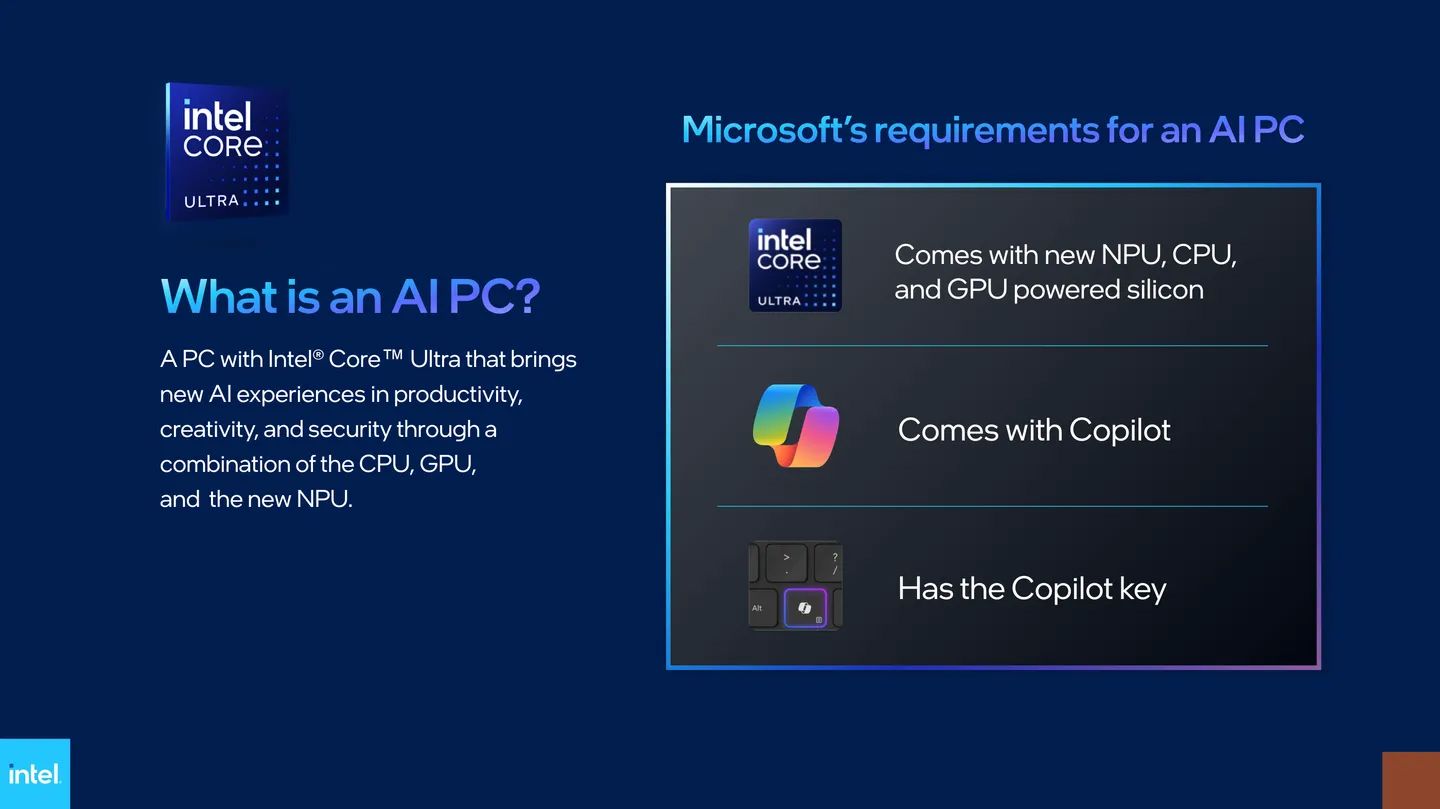AI is everywhere these days, and thanks to Microsoft pushing Copilot, it’s not easy to escape it. By now, Microsoft has probably put a Copilot key on your computer’s taskbar, and if you buy a new computer over the coming months, you’ll see a hardware Copilot key too. Intel has now confirmed that a Copilot key on the keyboard is a requirement for Microsoft’s definition of an “AI PC.”
Intel, Microsoft, Qualcomm, and AMD are collectively championing the concept of an “AI PC,” anticipating a future where Windows operates with heightened AI capabilities. Microsoft has set forth stringent criteria for computer manufacterors to sell AI PCs. These AI PCs are expected to integrate Neural Processing Units (NPUs), advanced CPUs, GPUs, and a hardware Copilot key, which was announced earlier this year and we’ve already seen on some PCs.
While Intel and Microsoft have aligned on the components necessary for an AI PC, such as Intel’s Core Ultra chips and integrated NPUs, discrepancies exist regarding the inclusion of the Copilot key. Some laptops, like Asus’ ROG Zephyrus, lack this key, despite featuring Intel’s Core Ultra chips. We might see less of this going forward, however, as a table released by Intel shows that Microsoft is requiring NPUs, Copilot, and that Copilot key in order to be considered an “AI PC.” We’re yet to see how it will be popping up over the coming months, but we’re expecting to see it a lot more frequently now.
Meanwhile, Intel is expanding its AI PC acceleration program to get software developers actually interested in leveraging AI capabilities and optimizing hardware for AI PCs. The program targets both large and small developers, offering resources and tools to facilitate AI integration into applications. This way, not only will we have more of these AI PCs, but we might also see a lot more software actually taking advantage of AI.
The upcoming Microsoft event on May 20th is anticipated to shed light on the company’s broader vision for AI hardware and software, potentially signaling further developments in the AI PC landscape. We’ll probably see more about this by then.
Source: The Verge


